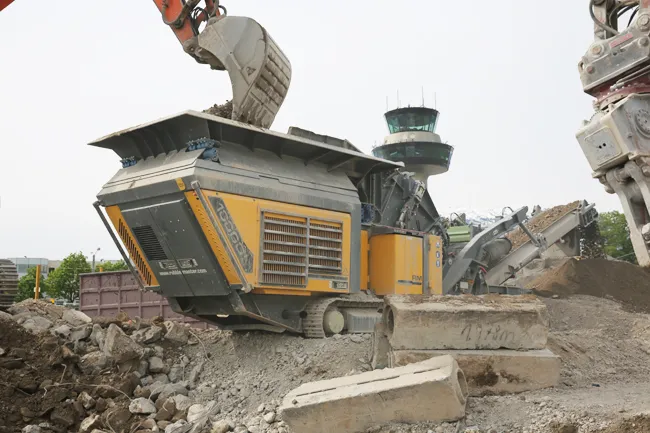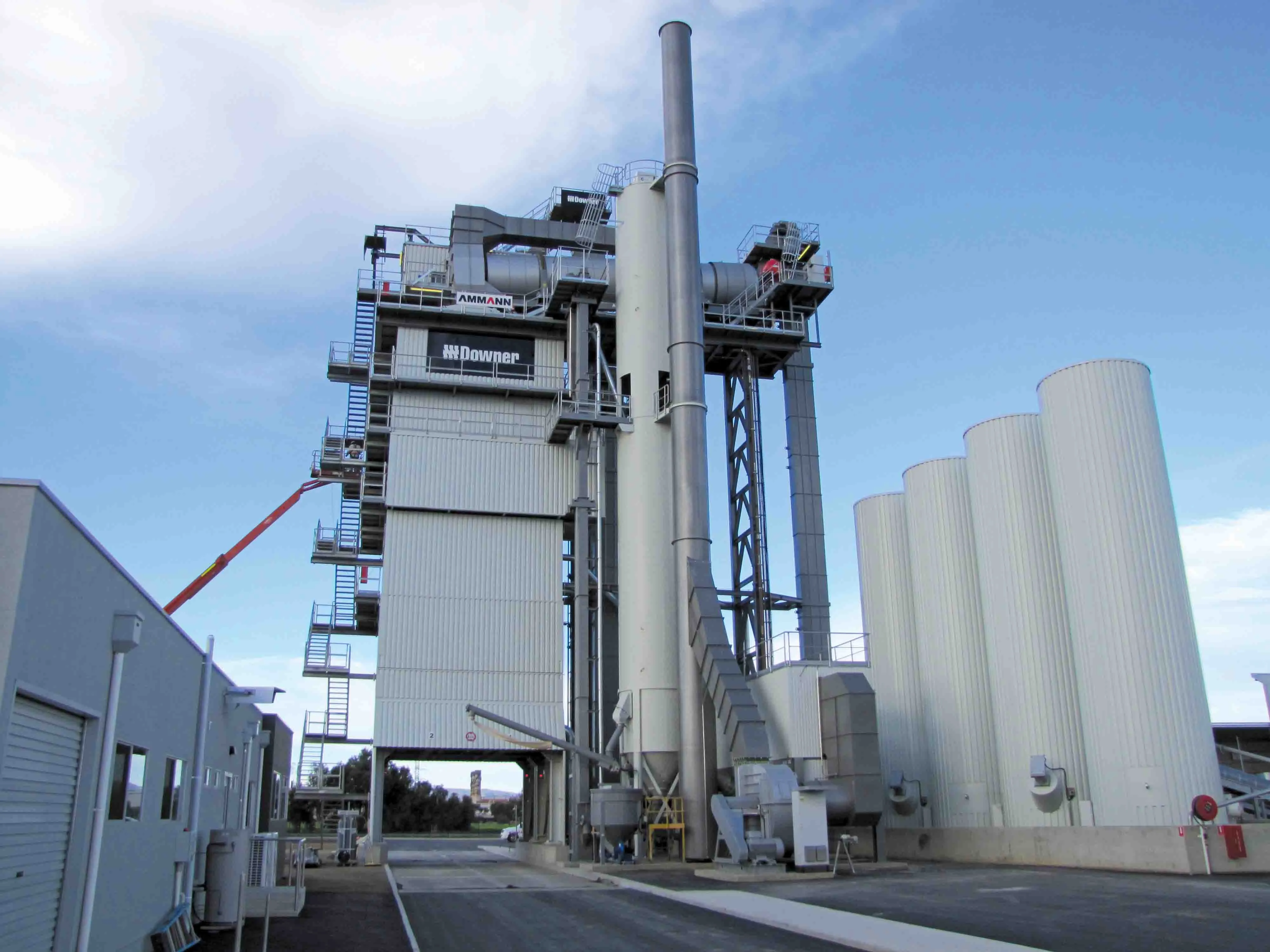
The new 2.75km runway was rebuilt following a total shutdown of flights at the airport for five weeks. The rebuilding work was assisted by the use of a compact crusher supplied by Linz-based
"This job was a challenge due to its tight time schedule," said Klaus Weickl, managing director of Weickl Erdbau. "We only had four weeks to complete all the work."
The rented, compact RM 100GO! crusher was able to work directly on-site at Salzburg Airport and in just under a week was able to crush all the material from the 2.75km-long runway into a recyclable final aggregate. This value aggregate was used for the substructure of the new runway. Weickl said that the sustainable use of resources made the project more effective and efficient, reducing transport needs, materials costs and lowering the overall environmental impact of a project. The firm has used crushing equipment from Rubble Master for on-site crushing on previous contracts, such as a section of the A99 Autobahn in Munich where it used an RM 120GO! model.








